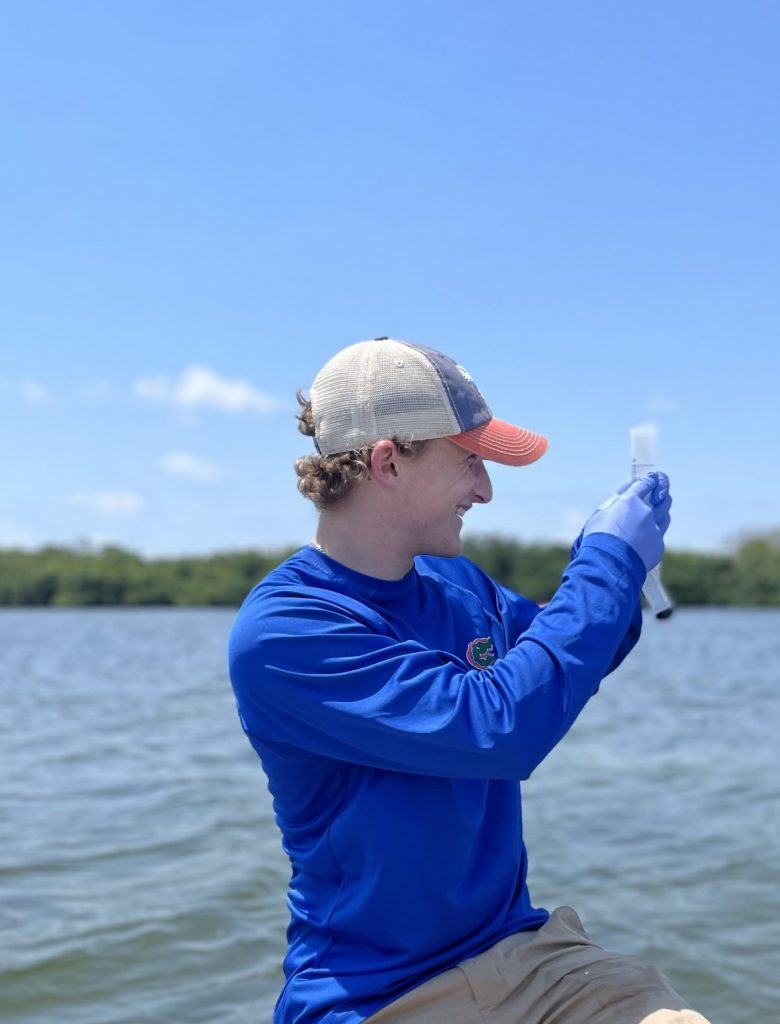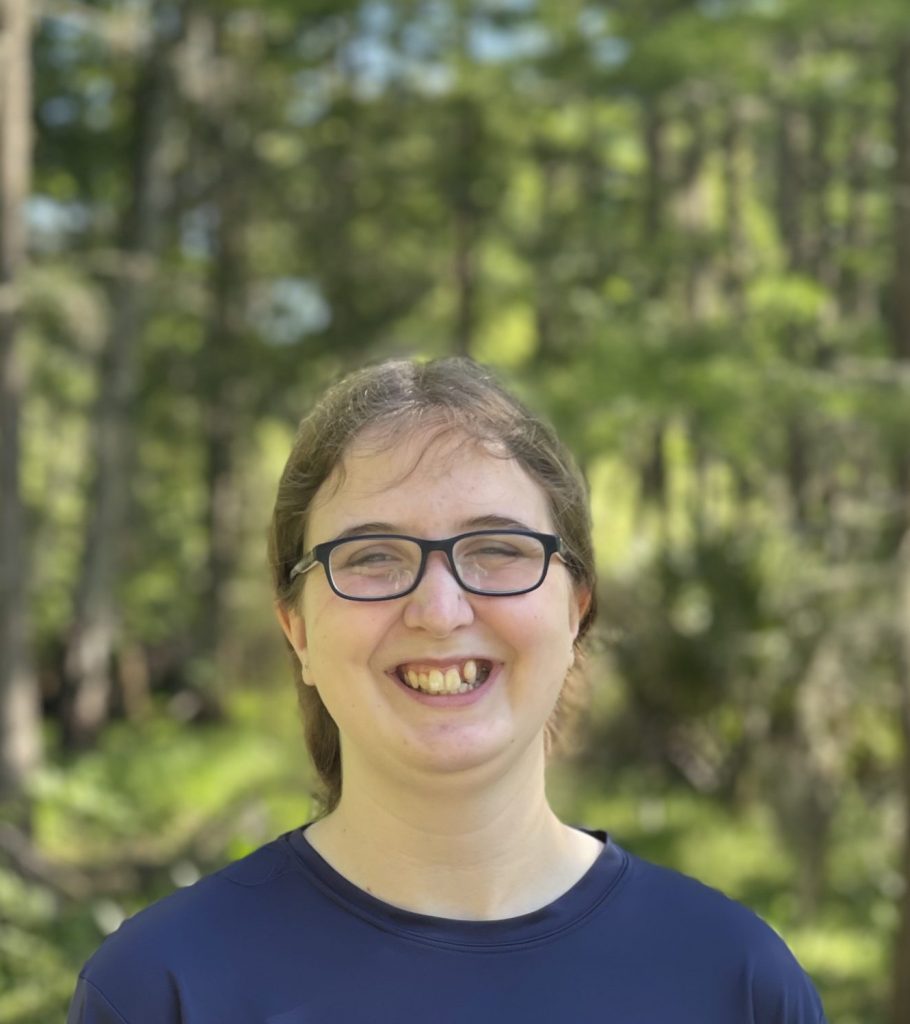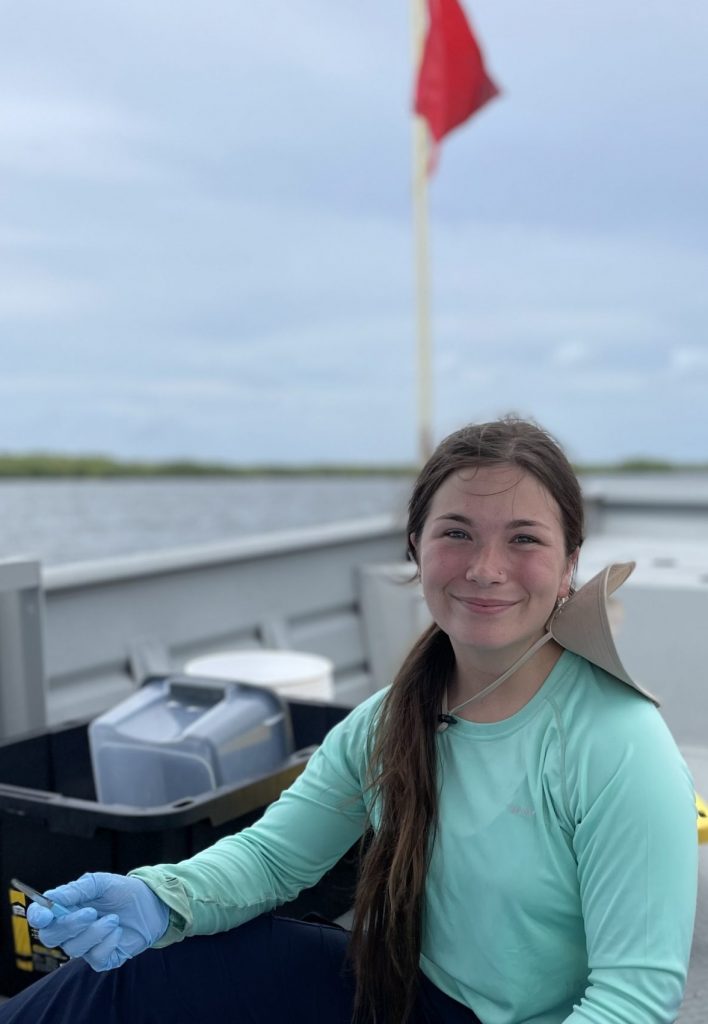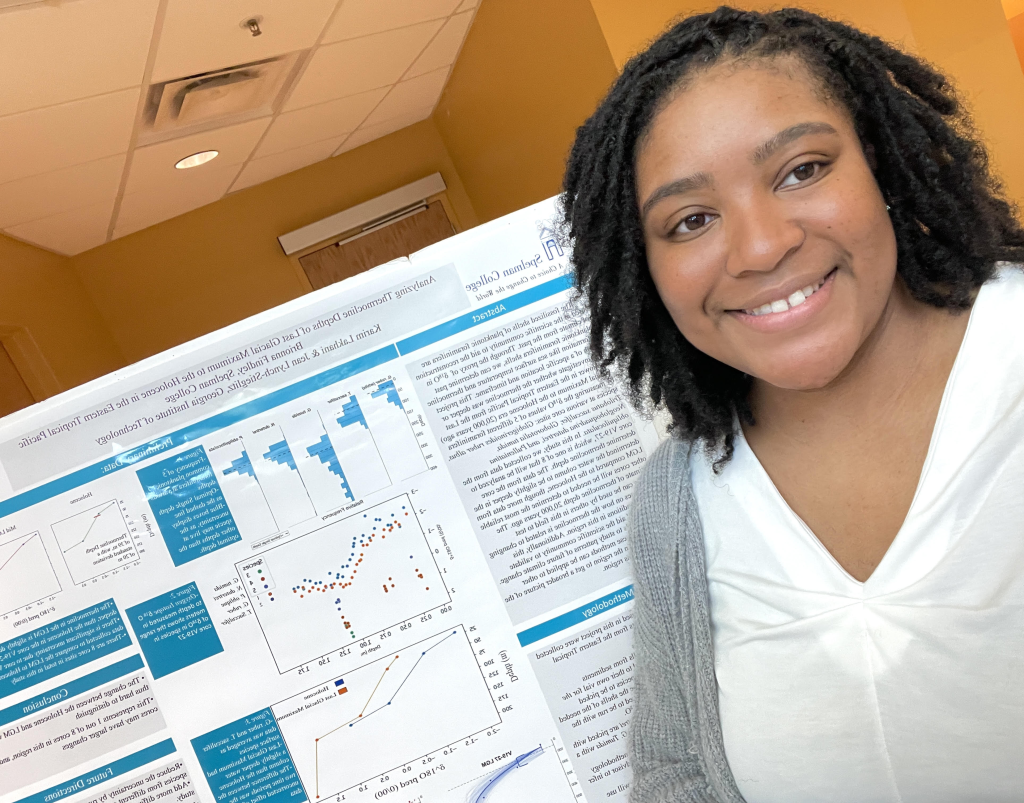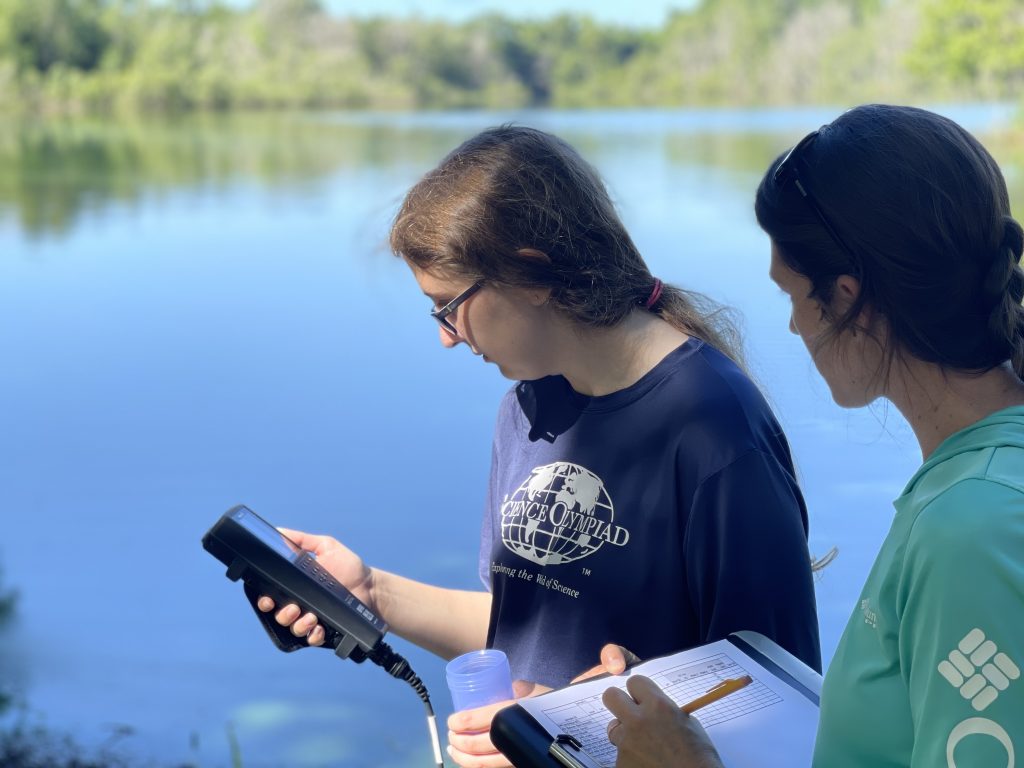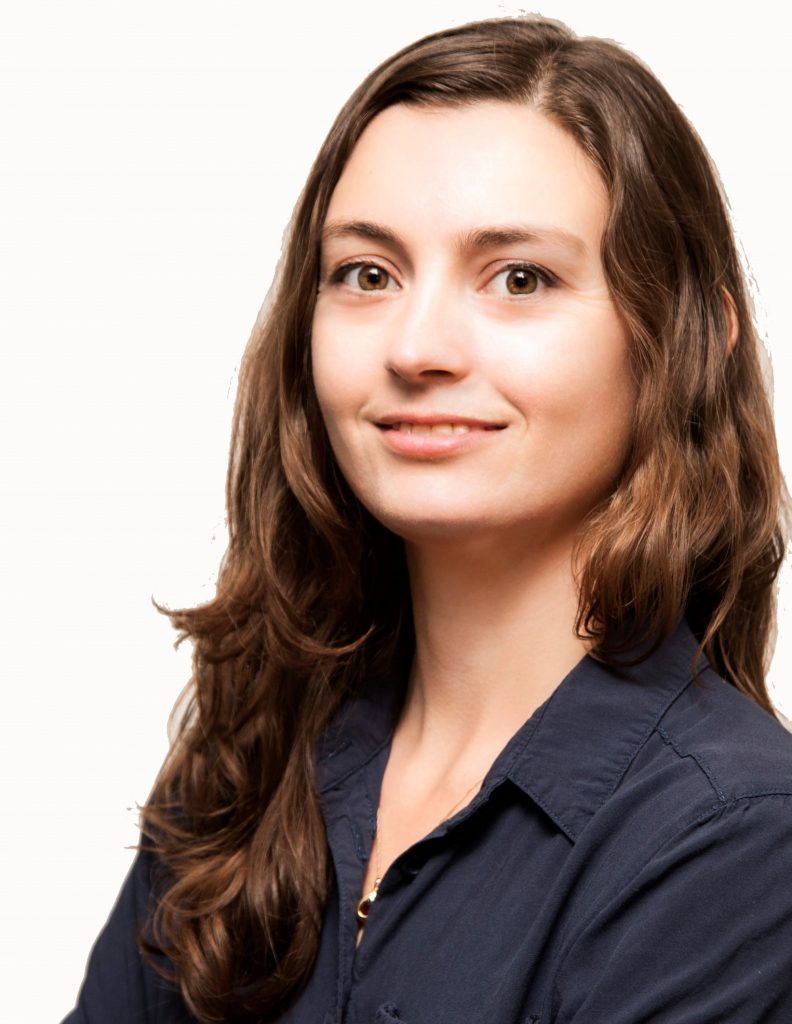
Dr. Elise S. Morrison – Principal Investigator
Dr. Elise S. Morrison is an Assistant Professor in the Department of Environmental Engineering Sciences in the Engineering School of Sustainable Infrastructure and Environments. Her research program focuses on nutrient and organic matter cycling in wetland and estuarine systems, with an emphasis on microbial processes and chemical biomarkers. Many of her ongoing projects evaluate the ecosystem and biogeochemical effects of anthropogenic nutrient inputs. She received her PhD in Soil Microbiology in the Soil and Water Sciences Department at the University of Florida and her B.S. in the University of California, Davis.
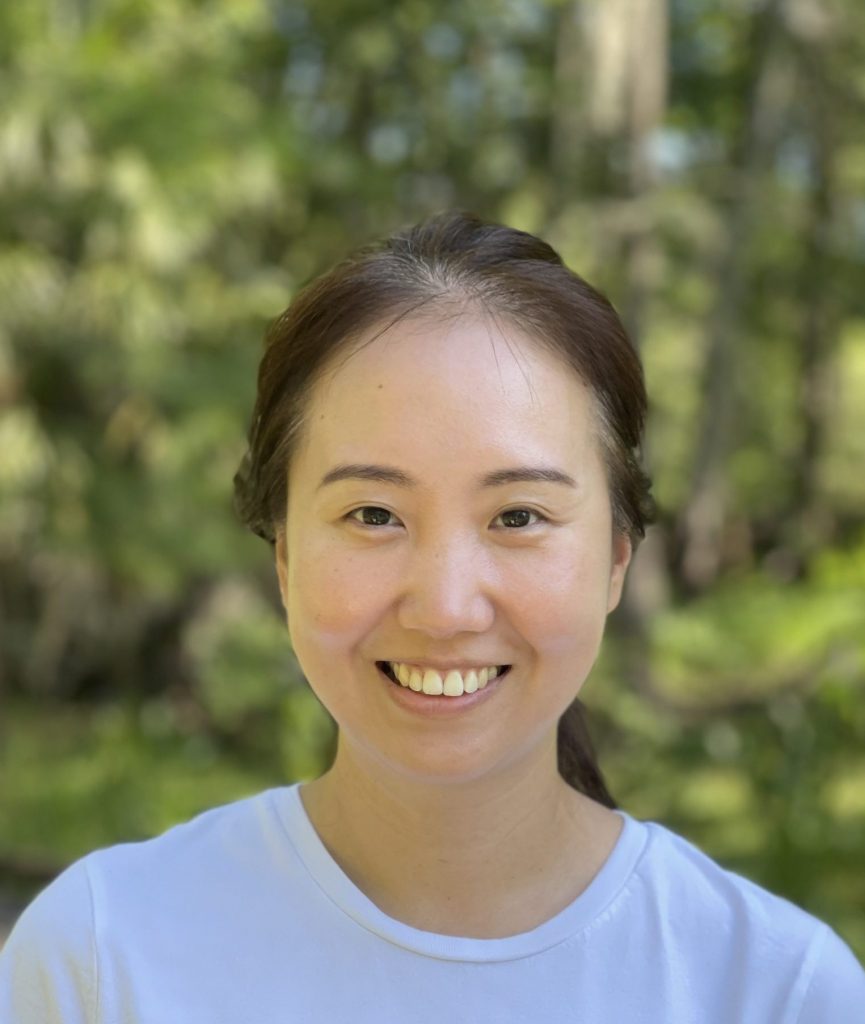
Dr. Shin-Ah Lee – Research Asst. Scientist
Dr. Shin-Ah Lee is a Research Assistant Scientist in the Morrison Lab. She earned a Ph.D. in Earth and Environmental science at Seoul National University in 2020 and she was focused on the source and fluxes of organic matter in the coastal ocean using biogeochemical tracers. Her research focuses on multiple biogeochemical tracers, including optical and fluorescence excitation−emission matrices to characterize dissolved organic matter and the analysis of stable isotopes of multiple elements, including the stable isotope of oxygen associated with phosphate.
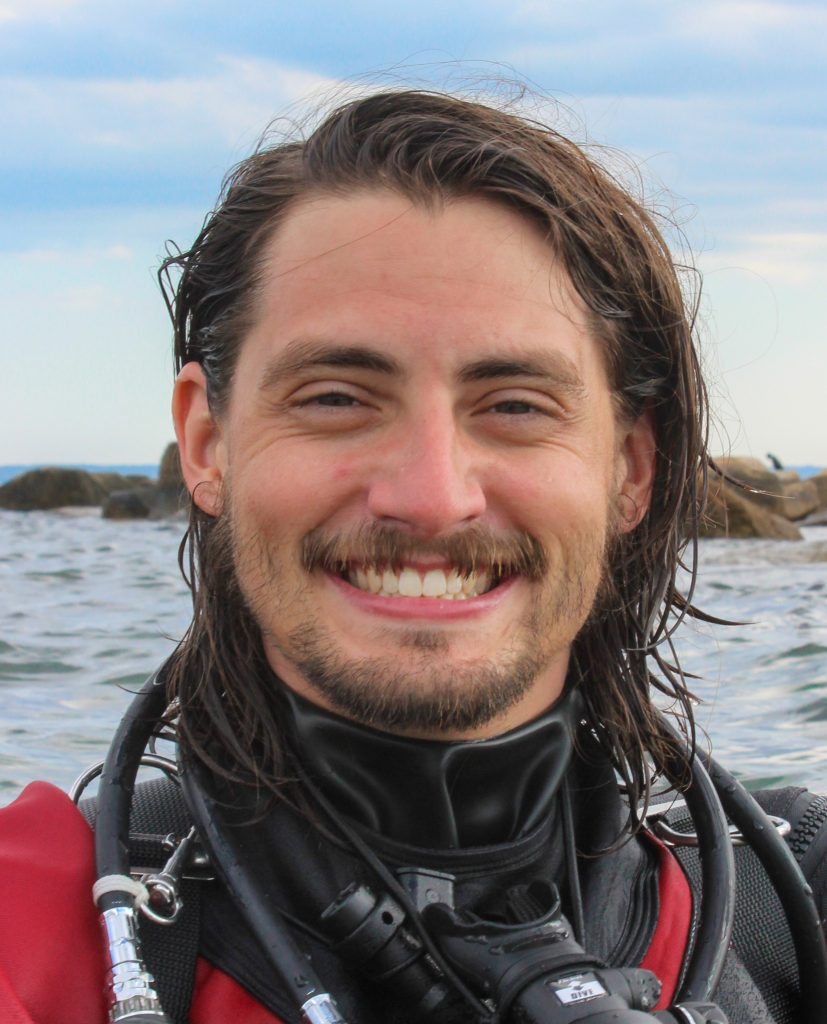
Dr. Robert (Bobby) Scharping – Postdoctoral Research Associate
Bobby earned his Ph.D. in Molecular Biology at the University of South Florida, where he studied the ecology and biogeochemistry of coastal aquifers and underwater caves. He continued researching coastal aquifer and cave ecosystems as a postdoctoral scholar at the Woods Hole Oceanographic Institution and the U.S. Geological Survey. Most recently, Bobby was a Visiting Instructor of Marine Biology at Florida Southern College. He enjoys cave diving, rebreather diving, paddling, backpacking, and playing music. In the Morrison Lab, Bobby is studying the organic matter, nutrient, and phytoplankton dynamics of South Florida estuaries to better understand harmful algal blooms in these systems.
PhD Students
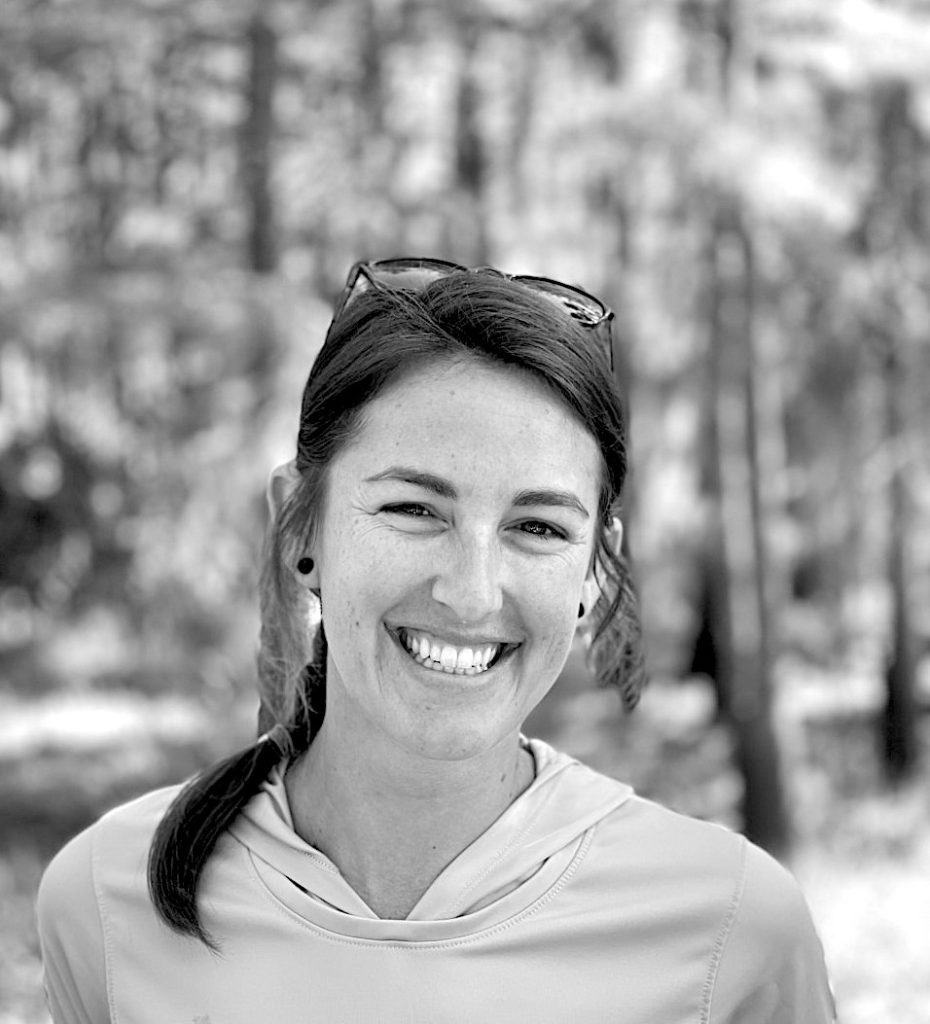
Amanda Chappel
Amanda has seven years of experience in environmental systems and biological research with a focus in coastal water chemistry and wetland soil biogeochemistry. Amanda is a Certified Ecologist and received her Bachelor and Master of Science from the University of South Florida in Environmental Science. Her research background includes quantifying carbon burial and accumulation rates as a proxy for sea-level rise and historic ecosystem dynamics in mangrove forests. Additionally, Amanda has studied nutrient cycling and sequestration in estuarine and coastal habitats, performed extensive mapping and monitoring of both terrestrial and aquatic ecosystems, and is proficient in listed species surveys.
She is studying the ecosystem effects of coastal eutrophication in estuarine systems with the goal of supporting effective management strategies that will advance solutions to minimize anthropogenic impacts to coastal waters. This research also seeks to better understand the influence anthropogenic nutrients have on habitats that are an ecological and economic necessity like mangrove, marsh, and seagrass communities.
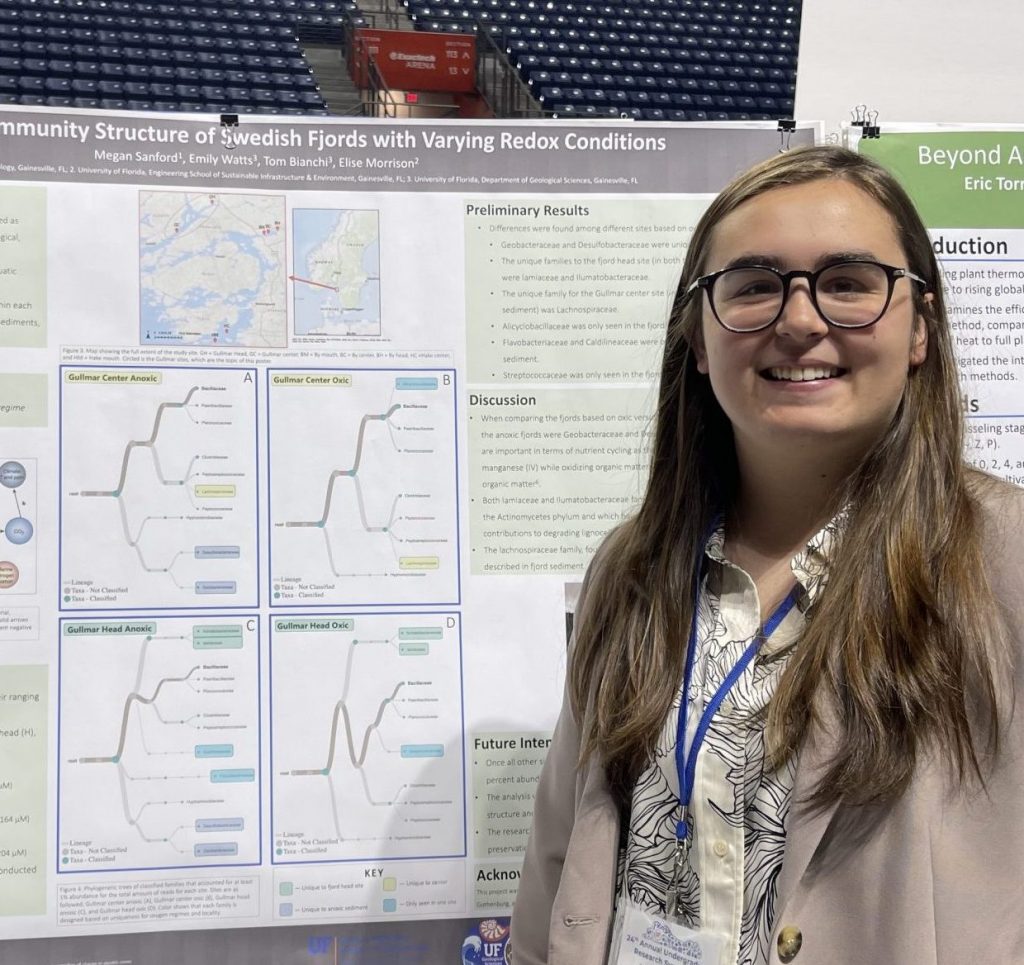
Megan Sanford
Megan received her B.S. in Biology and Wildlife Ecology and Conservation from the University of Florida. As an undergraduate student, Megan was involved in various research projects and pursued an undergraduate thesis categorizing the microbial community of Swedish fjords examining how microbes influence carbon transformation in highly efficient carbon burial sites.
Megan’s research focuses on understanding how microbial processes affect biogeochemical cycling at the ecosystem scale within coastal systems and the implications these processes have on global change. She is interested in using molecular, chemical, and isotopic metrics to elucidate microbial community structure and function in estuarine sediment. Currently, she is looking at the microbial community and function in salt marsh sediments to determine how microbial processes may be affected by sea level rise. She aims to understand how microbial processes and interactions influence net biogeochemical cycling and provide insight into how coastal systems will be impacted in the future.
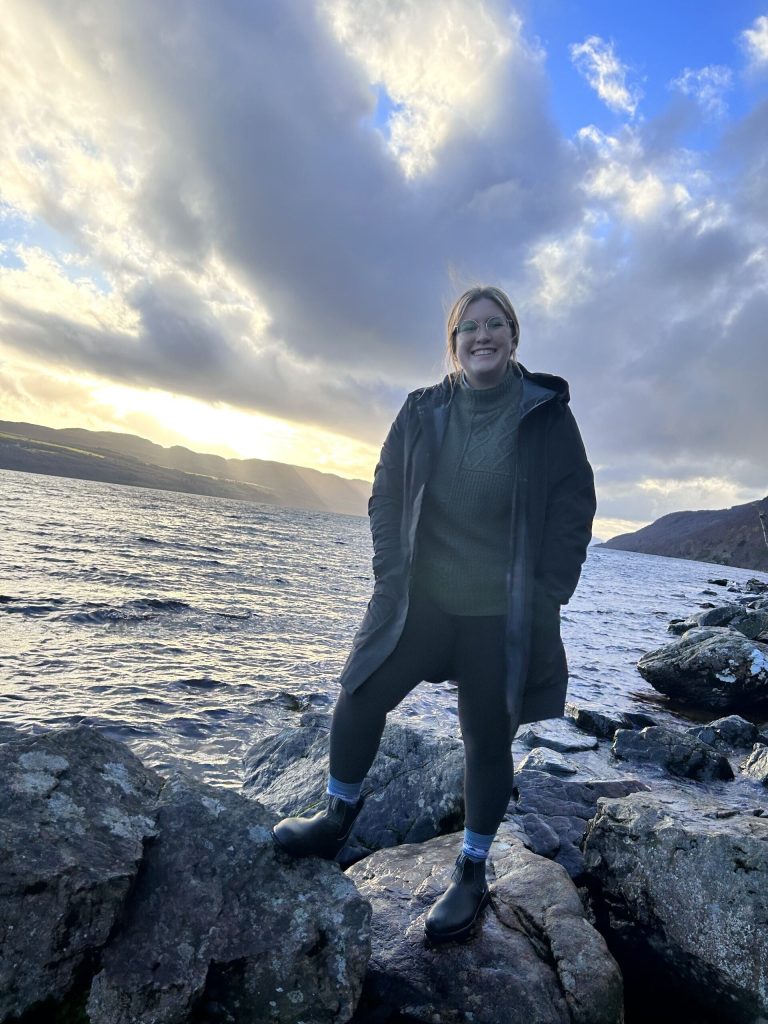
Madeline Sutherland
Madeline earned her Master of Science in Environmental Engineering from Newcastle University where her thesis focused on legacy heavy metals in rivers and the greater Tyne estuary through their appearance in plants and sediments. A Florida native, she went to the University of South Florida for her undergraduate degrees receiving BAs in Economics and Mathematics before moving to teach high school followed by her continuing graduate education.
Madeline’s research surrounds coastal systems and the ongoing anthropogenic impacts that affect them.
Master’s Students
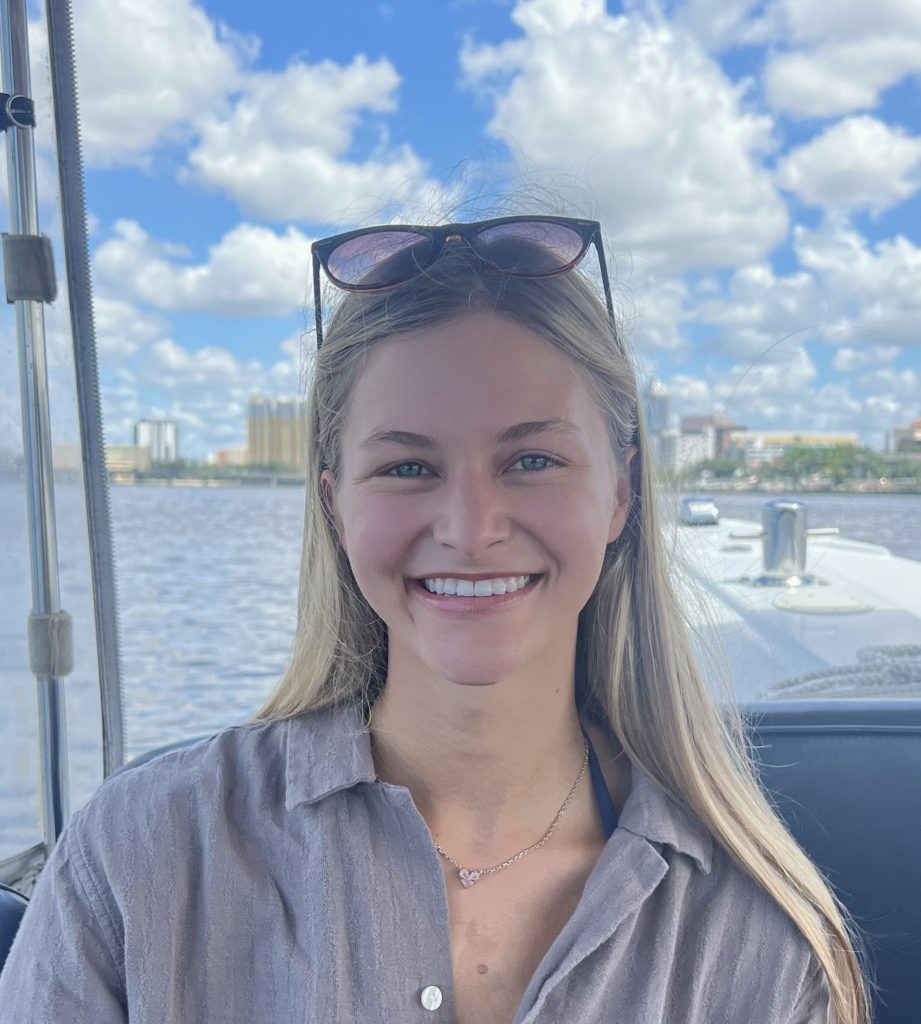
Zanti Rains
Zanti received her B.S. in Environmental Science with a minor in Biology from Florida State University. During those four years she worked as an Environmental Specialist at the Florida Geological Survey, a research intern at Apalachicola National Estuarine Research Reserve, participated in the Sustainable Land and Water Resources (MT) Research Experience for Undergraduates, and taught Spin classes. These were all growing experiences that were each very different from one another, resulting in a diverse array of interests and an excitement to gain more skills and perspectives at the University of Florida.
Zanti is joining the ongoing Sentinel Project. This project improves upon previous hurricane monitoring towers by co-locating wind and water measurements. The new towers (10 m) are submersible and will be temporarily placed on a beach in the path of an approaching hurricane. While the upper portions will acquire wind measurements, the submersed portions will acquire water-quality measurements from passing runoff and storm surge. This study will enhance understanding of water dynamics and the water-quality degradation that Florida shorelines experience after hurricanes. Zanti will be a part of the design team and will be evaluating and analyzing the data.
Undergraduate students
Lauren Blake
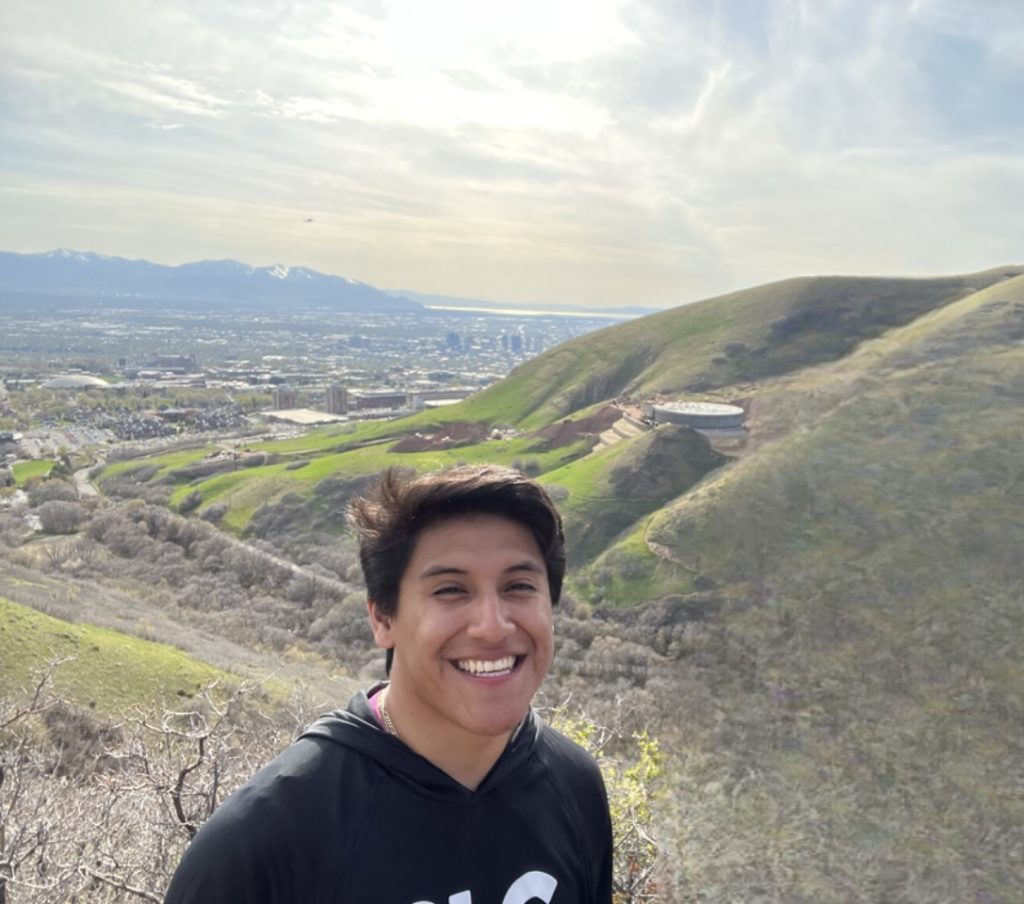
Kameron Masters
Past Lab Members
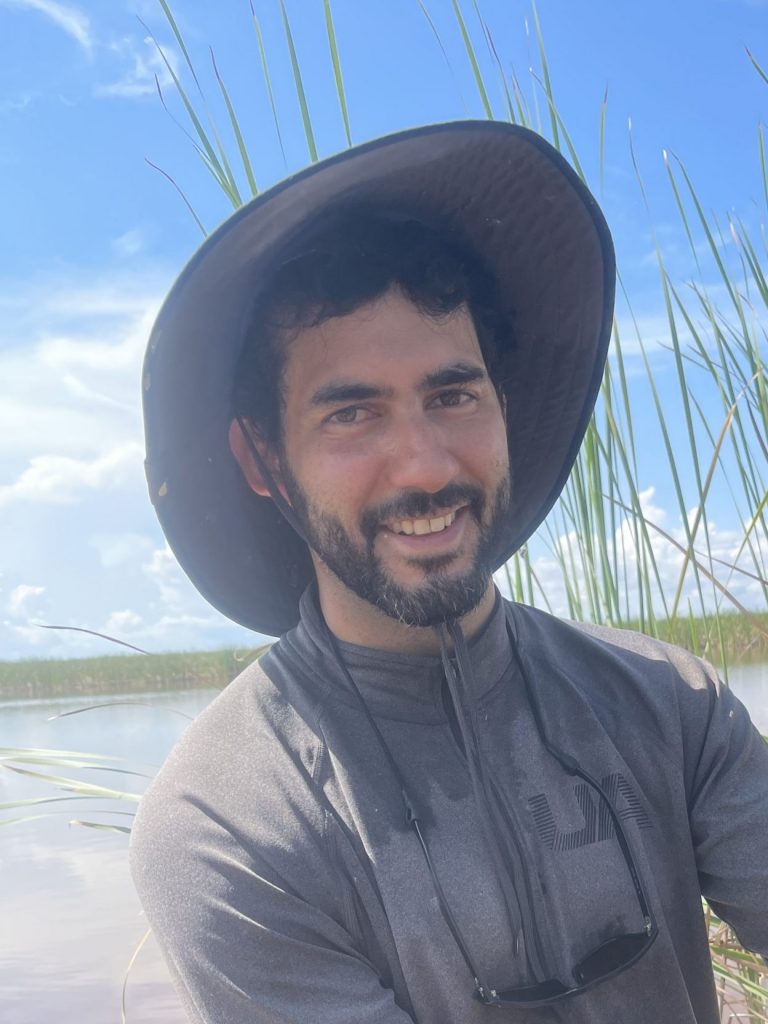
Dr. João Henrique Fernandes Amaral
Dr. João Henrique Fernandes Amaral was a postdoctoral researcher in the Morrison lab from 2021 to 2023. He is a biologist (Federal University of Minas Gerais, Brazil) with a Masters degree in Freshwater Biology and Continental Fisheries and a Ph.D. in Biology – Ecology, both from the National Institute for Amazon Research (INPA), Brazil. He is an ecosystem ecologist with a strong background in biogeochemistry and limnology, motivated to understand ecosystem functioning in inland water ecosystems.
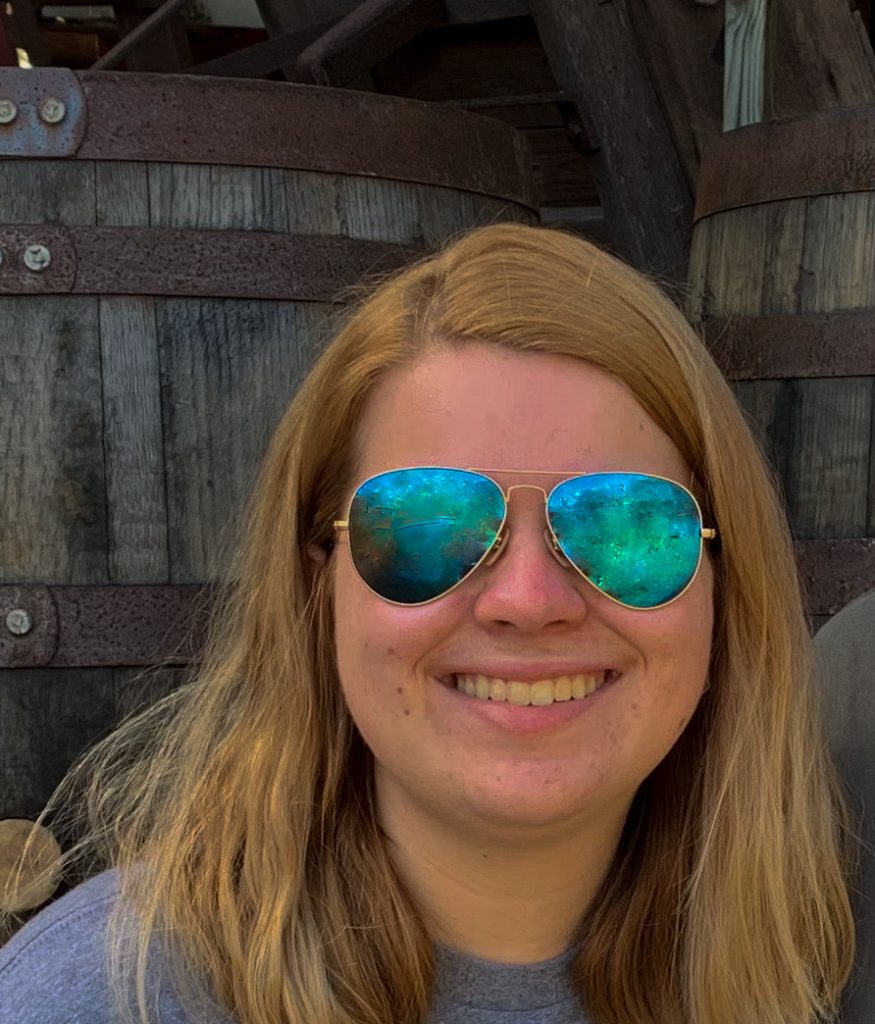
Leanne Olson
Leanne Olson was first an undergraduate and then a Master’s student in the Morrison lab. Her research focused on evaluating seasonal patterns in in situ water quality and comparing in situ estimates of water quality with those measured in the laboratory.
Undergraduate Students
